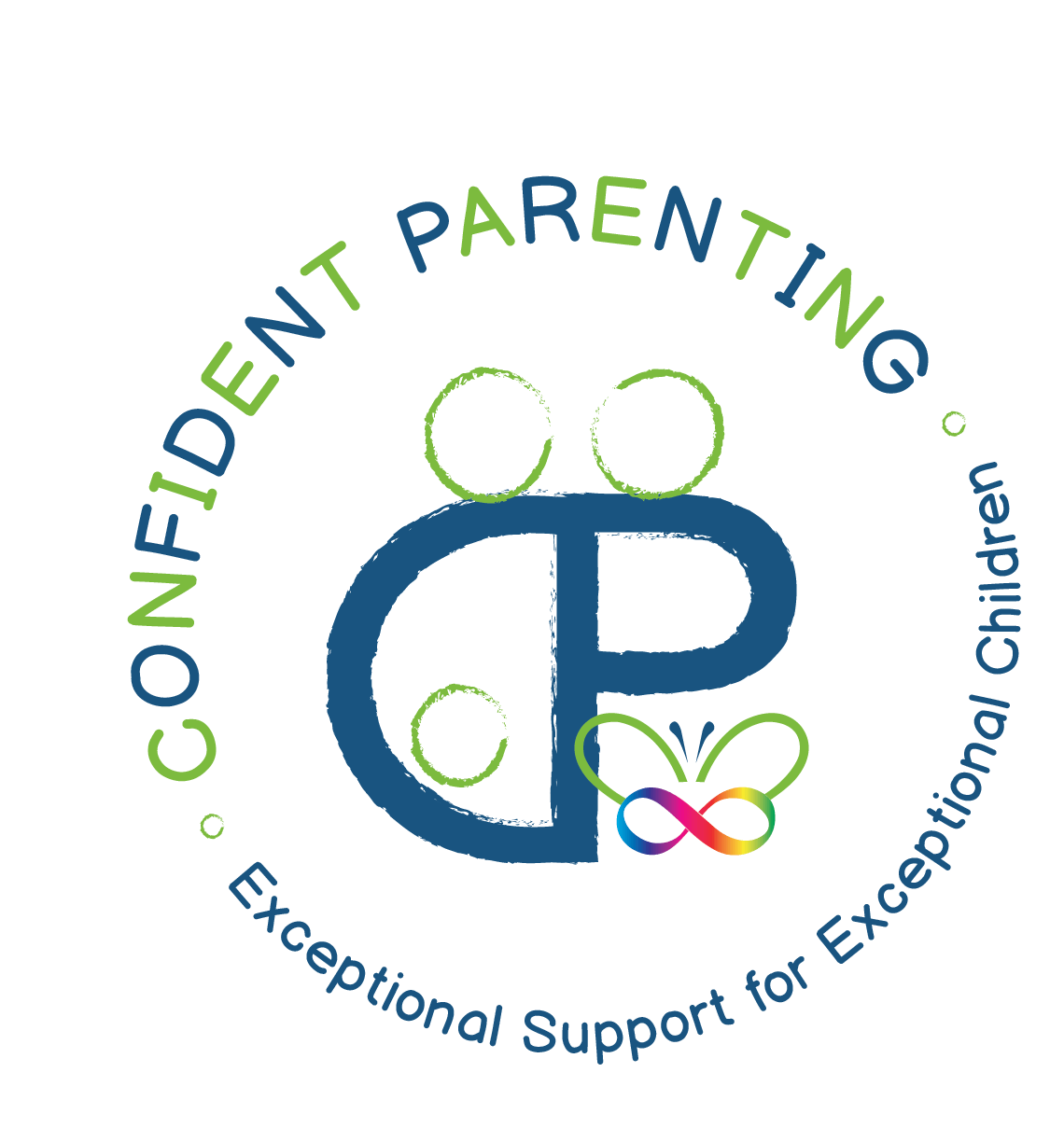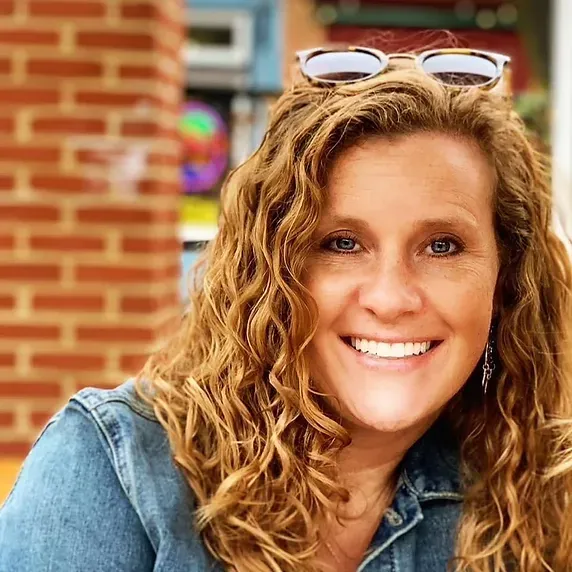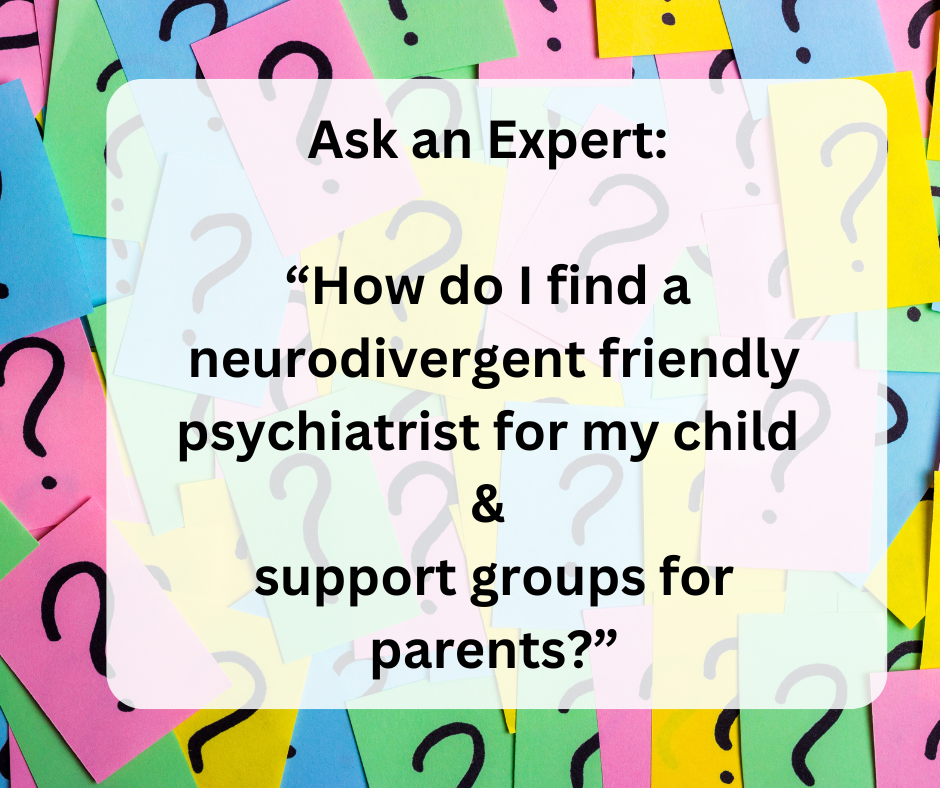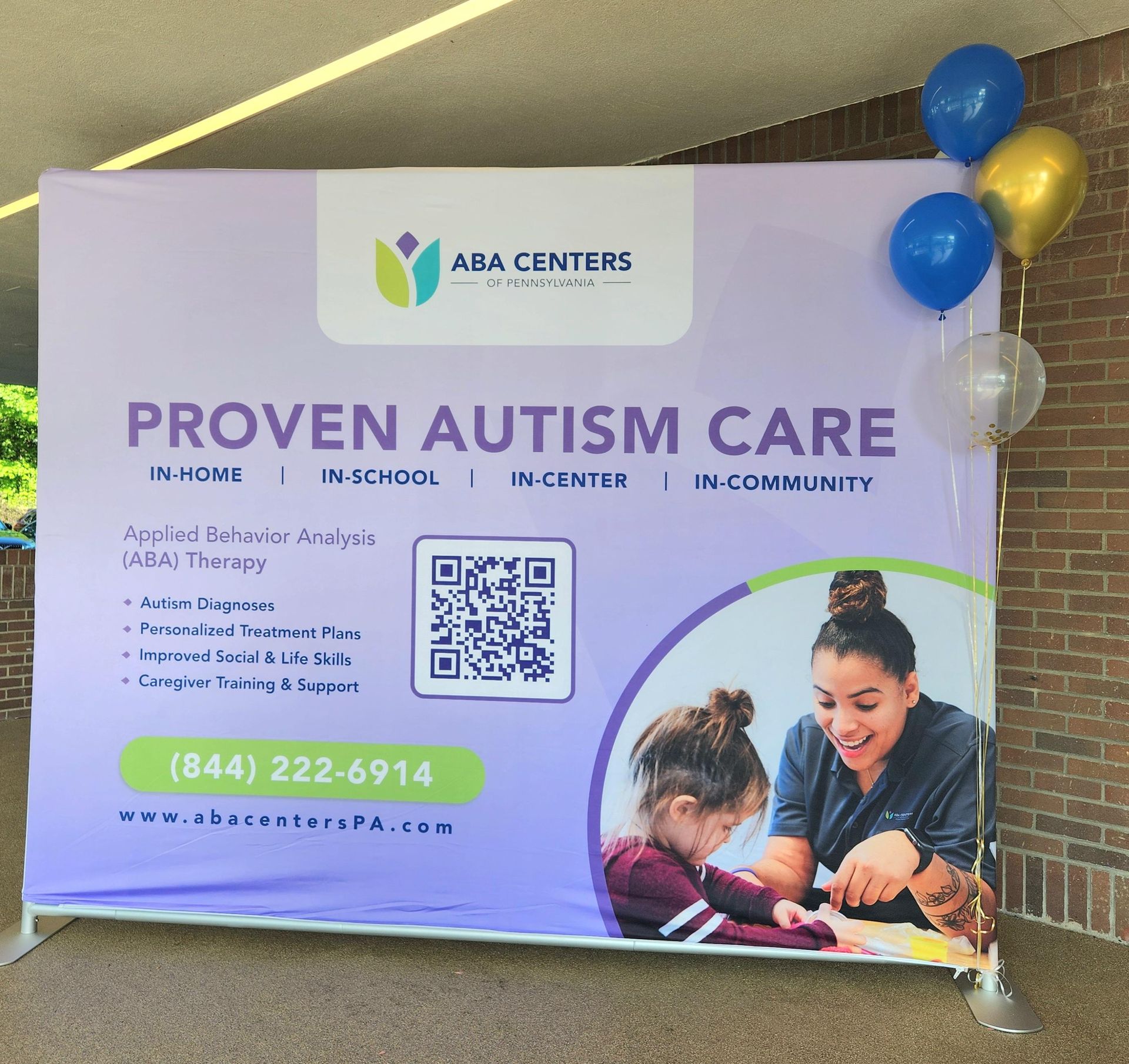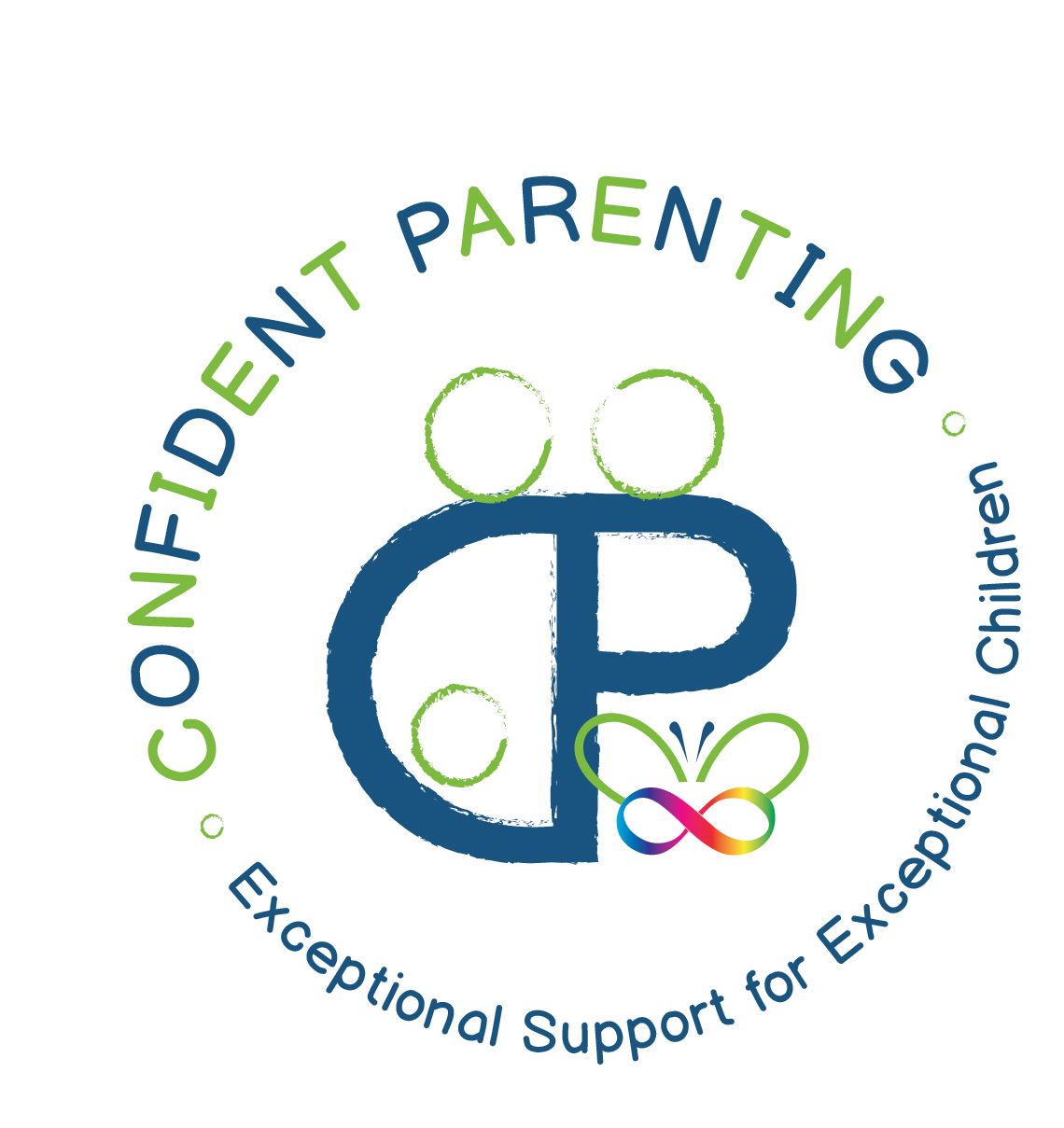Nicole Rouleau is the owner of Igniting Your Mind and is a neuroscience-based ADHD & Executive Function Educator/Coach. She helps clients understand that their unique brain states impact how they respond to stress in their environment. She collaborate with our clients to help them develop ways to regulate their emotions, demonstrate flexibility and build verbal and non-verbal working memory skills. These aspects comprise what we know as Executive Functions, a crucial set of life skills needed to achieve independence and success in life.
How Is Your Relationship With Your Teen?
Nicole Rouleau, ADHD-CCSP
As parents, it can be tough to see your teenager become distant or angry with you. These 10 tips can help you relate and reconnect.

It's not uncommon for teens to go through phases where they seem to hate their parents. But why does this happen? Through my experience coaching teens and being a mom to three children, I've learned that there are common themes in what teenagers find annoying and frustrating about their parents. Below, I've listed the most common complaints I've heard from teens about their parents and what you can do to help.
1. Frequently remind teens not to waste their potential. Telling teens that they aren't living up to their potential may seem like a good idea – after all, you want the best for your child. However, this approach can have an adverse effect.
Teenagers often feel like failures if they're on the receiving end of this type of comment. It can also lead them to believe that their parents' love is dependent on how successful they are. Instead of nagging or lecturing your teens, encourage them to reflect on their current situation. Help them to gain self-awareness without criticizing or reprimanding them. Ask them gently about what they plan to do to make progress. Don't forget to celebrate small wins along the way. You can also make positive comments to acknowledge your teens' effort when they work hard or implement good study habits, regardless of the outcome.
2. Parents overreact to small mistakes. We all make mistakes – it's a part of how we learn and grow. However, the way you respond to your teens' mistakes can cause problems.
For example, your teenager might have lost track of time while hanging out with friends. They're now late in getting home, and you're annoyed. It's important to take a step back and respond rather than react. First, ask your teen why they're late. Once you understand the situation better, you can then discuss strategies with them to prevent the same thing from happening in the future. Help them learn problem solving skills. The key is to not overreact. If you frequently overreact, it will create emotional distance between you and your teen.
3. Parents overemphasize academic achievement. Academics are important, but are they the only aspect of your teens' life worth discussing?
Rather than only asking your teens questions related to school, focus on building a connection with them. Try starting conversations by talking about things that your teens are interested in. Find out more about what they like and dislike, and about what their perspective is on various issues. Once you build a strong, trusting connection, teens will love to share their opinions, and in my experience, it is usually just as you are ready to go to bed! Give them time when they are ready to talk, before you know it, they are adults living their own life and you will wish you could get this time back.
The deeper the connection you have with your teens, the more likely it is that you'll be able to influence them when it counts.
4. Parents continually criticize and nag their teens. When raising teenagers, there will be opportunities for you to provide constructive criticism. However, nobody enjoys receiving constant criticism.
If you continually criticize your teens, it will hurt their self-esteem. Your teens might even become convinced that it's impossible to live up to your expectations. Try replacing negative comments with acknowledgments of your teens' progress. Make a positive comment whenever you observe your teens trying hard or behaving responsibly. This is a fantastic way to motivate your teenagers and show them that you're their biggest supporter.
5. Teens often feel disrespected by their parents. Nobody likes to be talked down to or treated disrespectfully. Even though you have more knowledge and experience than your teenagers, avoid being condescending.
Think back to when you were a teenager. You probably thought you knew better than your parents, so don't be surprised if your teens think they know better than you. So treat your teens with respect. If you don't, it'll be hard for you to expect the same kind of treatment from them.
6. Teens feel pressured to pursue their parent's dreams.
It can be tempting to view your teens as younger versions of yourself, but you need to respect their individuality and support them as they work toward goals they find meaningful. You might work hard to offer opportunities for your teens to do things you couldn’t do when you were younger. Is it possible they feel like you are pushing them towards a career path or extracurricular interest? It's important to acknowledge that your teenagers have their own unique personalities and passions. As a parent, you should honor their individuality and encourage them to pursue their own meaningful objectives.
7. Do you downplay your teen's feelings? It's important not to dismiss or invalidate your teen's feelings, as this can minimize issues that are important to them.
Remember that acknowledging your teen's emotions doesn't imply that you approve of their actions or beliefs. It just means that you are actively listening to their perspective, empathizing with their situation, and showing them that you value their feelings and your connection with them. It is crucial to validate your teenager's emotions as it provides them with a sense of support and reinforces their belief that they can confide in you regarding their problems and worries.
For instance, if your teenager expresses distress over not being selected for the soccer team, it is essential to acknowledge their emotions and offer support rather than dismissing their feelings with advice such as practicing harder for next year. Instead, phrases like "I can imagine how tough it must be to not make the team after putting in so much effort. It's understandable to feel upset" can validate their feelings.
By validating your teenager's emotions, you help them feel less isolated when dealing with life's challenges, and you offer them a trusted source to work through their emotions, which can be beneficial in future predicaments. Validation is a critical skill that is often encouraged and practiced during many therapy sessions, especially in DBT.
8. Parents often overlook the things that matter to their teenagers.
What sort of things really matter to you teens? Along the lines of validation mentioned above, we must try not to be dismissive of things that are important to your teens, even if you think they might be a waste of their time.
9. Do you apologize when you are wrong?
It can be tough to admit when you're wrong, but apologizing takes courage and models responsible behavior for your teenagers. It can inspire them to do the same when faced with a similar situation.
10. Teens often say that their parents don't include them in the decision-making process.
As teens get older, they'll start to test existing boundaries. It only makes sense to include your teens in setting expectations and boundaries. Working together to establish healthy boundaries is beneficial to both parents and teens. After all, we want our children to become confident decision makers as young adults. This is actually a skill and needs to be taught.
Let's face it, maintaining a healthy relationship with your teenager is essential for their emotional and mental well-being. By identifying which reasons ring true for you and your teen, you can take steps to mend the relationship and strengthen it too. With time and effort, you can bring out the best in your teen and build a positive relationship.
Thank you to Nicole Rouleau of Igniting Your Mind for this guest post.

Thank you to our friends at InStride Health for this guest post! At its core, perfectionism is the tendency to have very high standards for ourselves or others. Not all perfectionism is harmful. Research shows that some perfectionistic behaviors are useful and help young people reach meaningful goals. This adaptive form of striving pushes kids and teens to work hard, take pride in their efforts, and stay flexible when things don’t go exactly as planned. The trouble begins when perfectionism becomes driven by anxiety, guilt, fear of judgment, fear of failure, and shame. Often individuals engaging in problematic perfectionistic behaviors experience fixed thinking and unrealistic expectations. These internal pressures can be relentless and emotionally exhausting, fueling self-criticism, procrastination, and avoidance. And instead of helping kids grow, they slowly shrink the world they feel comfortable living in. Here are some ways problematic perfectionistic behaviors can show up in a young person’s life. School and the Pressure to Get Everything Exactly Right Academic settings are a breeding ground for problematic perfectionistic behaviors. A young person might feel a need for things to be done in a very specific way, redoing steps or checking their work repeatedly to relieve the discomfort of imperfection. Others may delay starting work because beginning feels risky, or finish a task and avoid turning it in because it isn’t perfect. Over time, school becomes less about learning and more about controlling outcomes. Social Life, People-Pleasing, and the Fear of Being Seen Imperfectly Social situations are another area where problematic perfectionistic behaviors can show up. Some young people might overthink what they say, rehearse conversations, or avoid certain social situations altogether. Others become chronic people-pleasers, feeling they need to always be agreeable or helpful. Fears of being judged, embarrassed, or perceived negatively can make them feel they must present a “perfect” version of themselves at all times. This limits friendships, prevents authentic connection, and makes everyday social interactions, like starting conversations, meeting new people, or speaking up, feel stressful. Hobbies, Creativity, and the Loss of Play Perfectionism doesn’t just affect academics or relationships; it can drain the joy out of hobbies and creative activities. Kids and teens may pull back from or even stop doing the things they love, like drawing, playing music or sports, participating in plays, or trying new things because they feel pressure to be the best. They are scared to even try out of fear that they won’t excel right away or become a star, and their world becomes less playful and curious and more fear-driven. Decision-Making and the Fear of Choosing Wrong Another place problematic perfectionistic behaviors show up is in decision-making. Buying gifts, picking out clothes, or deciding where to eat can start to feel overwhelming. Young people may spend so much time thinking through options and trying to find the “best” one that they freeze, avoid choosing, or hand decisions off to others. Avoidance becomes a way of staying “safe.” If they don’t choose, they can’t choose wrong. Unlearning Problematic Perfectionistic Behaviors Because problematic perfectionistic behaviors are learned, they can be unlearned, with the right evidence-based support and practice. At InStride Health, we help young people understand that targeting these behaviors in treatment isn’t about lowering expectations or giving up on values like hard work or trying their best. Instead, it’s about teaching them to notice and name these behaviors and associated thoughts and emotions and then choosing new, more flexible ways to respond. This work includes tolerating imperfections and uncertainty through exposures, engaging with thoughts more flexibly, and building genuine self-compassion. As perfectionism loosens its grip, young people can rediscover the confidence, curiosity, and freedom to try things without needing them to go perfectly. And their world expands again.

6 Common Special Needs Planning Missteps & How to Avoid Them Guest Post by Pat Bergmaier, CFP®, ChSNC® Over the years, I’ve met many well-meaning, loving parents who mistakenly assume they’re “all set” when it comes to handling the unique financial needs of their child with special needs, only to find out later that they’ve missed a key step. It’s understandable, but these situations can often be avoided with some proper planning help. Here are some frequent planning missteps to be aware of that could impact the financial future of your child or family member with special needs.

Where Can I Have My Child Evaluated for Autism, ADHD & Giftedness? If you have concerns about your child's development or learning, then you likely already know that many local providers have waitlists as long as 18-24 months for evaluations. As a parent who was once putting my child's name on those lists, I grew frustrated and made it my mission to collect parent recommended resources with minimal waitlists who can help families get answers as early as possible. Here are many excellent options to consider.
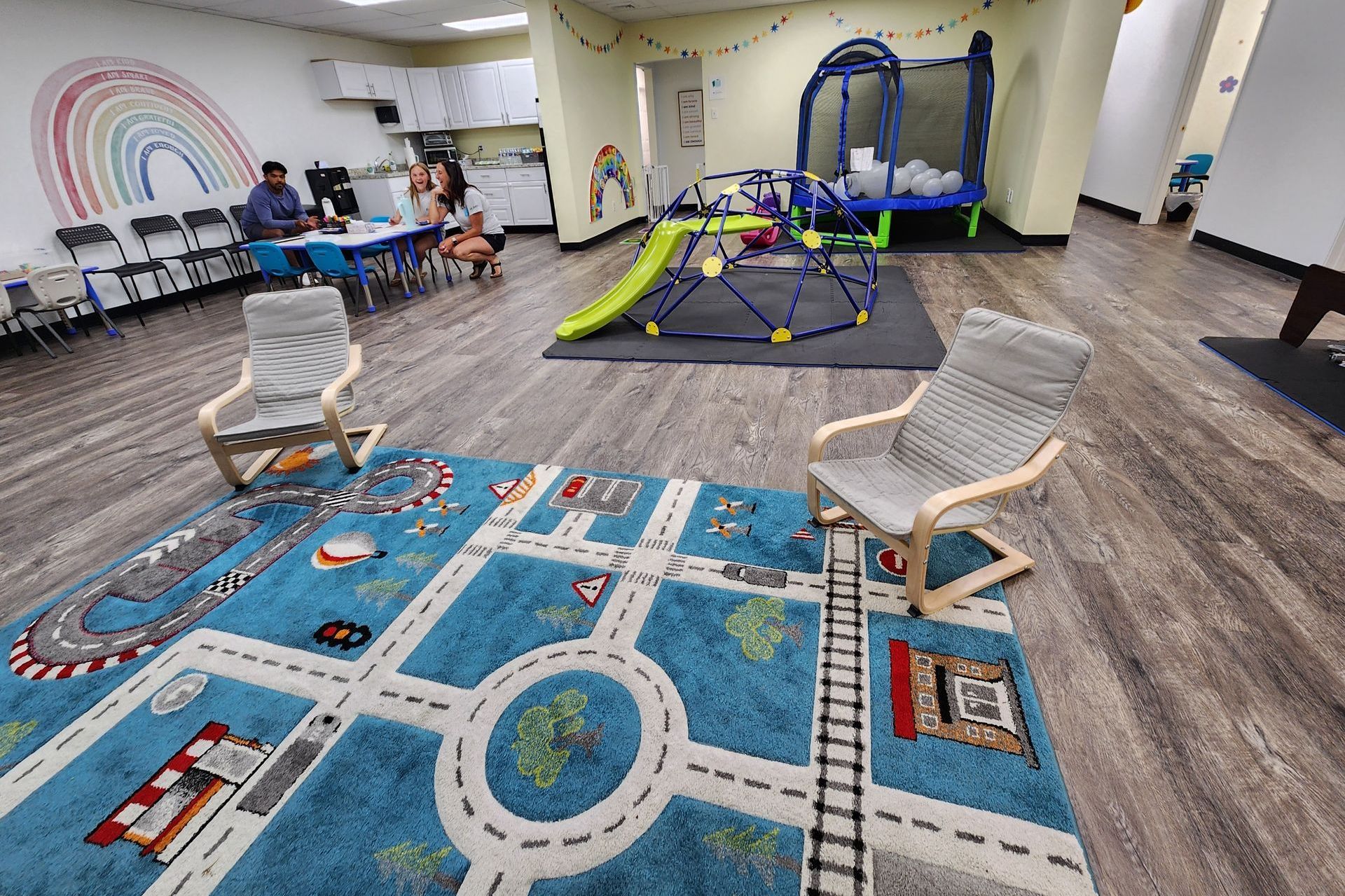
Beyond Autism Opens their 3rd Location in Havertown Pa! Beyond Autism is a collaborative center that provides individualized ABA, Speech and Occupational Therapy for children and adolescents diagnosed on the Autism Spectrum. They partner with families living with autism to build a strong foundation for their children in early childhood and beyond and passionately believe that their team inspires and supports change through evidence-based teaching methods and practices. Their newest location recently opened in Havertown and they continue to offer services out of their West Chester and Media locations. Applied Behavior Analysis (ABA) is a scientific, data based field that has utilized principles of learning and behavior for over 30 years to teach children with Autism enhanced social behaviors like self-care, play, motor skills, language, academic, self-help and other living skills. Their typical timeframe to begin services ranges from 2-4 weeks and, best of all, Beyond accepts all major commercial insurances. While they are not a Medicaid provider, they do offer a hardship program for those in need of financial assistance. Beyond offers a variety of service areas which include but are not limited to: Autism Spectrum Disorder Childhood Apraxia of Speech Early Intervention of Speech/Language Delay Expressive and Receptive Language Disorders Fluency/Stuttering Disorders Artic Phonological Disorders Social Skills/Pragmatic Language Deficits Learning Disabilities Augmentative and Alternative Communication (AAC) Feeding and swallowing Their occupational therapy program focuses on providing skilled based services in the following areas: Activities of daily living (i.e dressing, feeding, toileting & tooth brushing) Sensory processing Fine and gross motor skills Self-regulation and social skills Visual motor & perception skills Play and leisure skills Learn more and contact them at the link below and welcome Beyond Autism to the neighborhood!

Do you have a child who is exploring potential careers and wishes to do more research? Here are my top 3 websites to explore job goals! O*Net Online O*Net Online is a fabulous website that you could spend hours on. Do you have a specific job that you are interested in researching? You can search for it specifically and you can see all of the job duties associated, the education required, salary information, as well as other jobs that are related to that position. You can also explore jobs based on a specific skill set, by professional associations, job duties, etc. The website also designates which jobs are “bright outcomes”, meaning that the industry is growing and therefore jobs will most likely be available in your field. The website also includes a free interest profile which is helpful in narrowing options. Overall, I could spend hours doing research on O*Net! It is my favorite website by far! Pennsylvania’s Center for Workforce Information & Analysis This website provides labor statistics based on information gathered from the state of Pennsylvania and breaks it down by counties. My favorite statistic to explore is the “Top 50 New Hires”. This is updated every quarter, so it has the most up to date information. This list shows the top 50 employers in each county who have hired workers. This list can be beneficial to explore what type of industries are prevalent in the area that you live in or wish to live in, as well to give ideas of employers to explore for potential jobs. You can find an employer and then search their site for the types of jobs that they are hiring for. The information is extremely interesting, especially when comparing different counties. Occupational Outlook Handbook This website is similar to O*Net Online because it also allows you to explore different job goals in a variety of ways including by pay, educational level, projected new jobs, and projected growth rate. This website is developed using the US Bureau of Labor Statistics. There is a video on the home page which gives you information on how to best use the site. It is another great option for you and your child to explore different job goals. The Pennsylvania Office of Vocational Rehabilitation, or OVR, provides vocational rehabilitation services to help persons with disabilities prepare for, obtain or maintain employment.
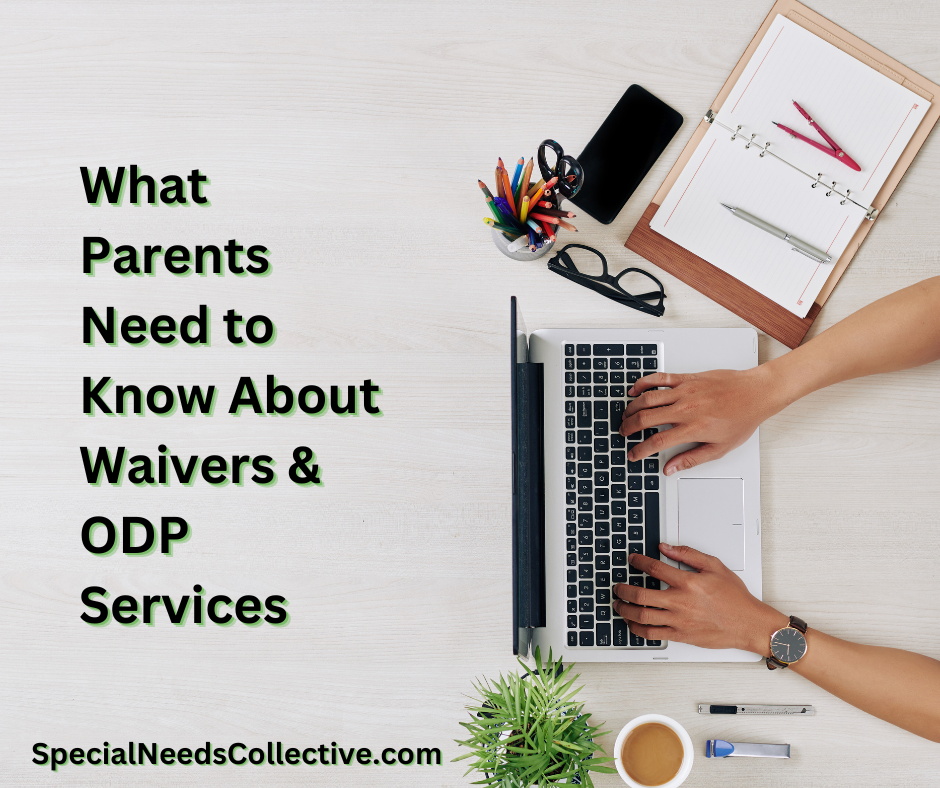
If you are a parent of a child with an intellectual disability or autism, it can be overwhelming knowing which agencies you need to connect with to support your child. One of the first agencies that you should explore is the Office of Developmental Programs (ODP). Pennsylvania’s Office of Developmental Programs has a mission to assist Pennsylvanians with developmental disabilities to achieve greater independence, choice, and opportunity in their lives. Services include (but are not limited to) assistive technology, benefits counseling, community support, therapies, transportation, employment support, educational support, respite care, housing, etc. The services provided are tailored to the needs of your child. You must contact your county ODP office and schedule a time to speak with the intake person who will gather your information. ODP provides services through Administrative Entities. An administrative entity is an agency that can oversee ODP services. As a parent, you will have a choice of which Administrative Entity you would like to work with. It is encouraged to reach out to speak to the different Administrative Entities available to determine which one is the best fit for your family. I also encourage you to discuss with other members of your community who may have worked with them in the past. Once assigned to an administrative entity, you will be assigned to a Supports Coordinator who will be your main point person as you navigate services. It is important that this person is kept in the loop and informed of any important changes. Services are funded through something called a “waiver”. Some waivers are available at birth, therefore there is no need to wait to enroll for ODP. There are different waivers available and although several of them overlap in the types of services they provide, they may differ in the amount of funds that can be spent on a yearly basis. This can impact the number of services your child can access and at times, you may have to prioritize what is most important for them to have. Your supports coordinator will let you know which waiver you are eligible for and will help develop a plan, an Individualized Service Plan, which will outline the services provided. The ISP is updated on an annual basis. I have had discussions with families in the past who have been hesitant to enroll with ODP because they had misconceptions of the services that they provide. They believed that the services were just for individuals with significant cognitive disabilities and that their child would not be eligible. Some families I have worked with didn’t realize that individuals with autism were eligible for ODP as well. In reality, ODP provides funding for an extensive amount of services. If your child is going to need supported employment services, ODP will work hand in hand with the Office of Vocational Rehabilitation to provide the on-going on-site support. ODP funds have also been used to pay for the tuition for autism programs through universities. I have also seen ODP funds be used to fund Uber rides to and from employment. Your supports coordinator will be the one to assist you in determining how funds are used. Why is it important to enroll now versus waiting? For some waivers, it may be first come first served and may require for you to join a wait list. The number so individuals accessing these services continues to grow and there are limits to the funding available. In addition, it is important to have the supports coordinator involved early so that they can assist with the transition out of high school. In addition, to be eligible, you must provide documentation and complete an application. This process can take time, so you do not want to wait to get started. For more information about ODP, please visit ODP’s website which features The Gold Book , which explains services and waivers in digestible way.

Whether your teen or young adult is moving toward post secondary education or employment, Certified Vocational Rehabilitation Counselor Erin Brown has tips for a smoother transition... In PA, planning for the transition from high school to employment and/or post-secondary education begins at age 14, however, it's never too late to start! Here are things to keep in mind when planning and implementing a transition plan. Talk About Employment Early Students are typically only exposed to jobs they interact with so you'll want to widen their exposure as well as discuss their interests and hobbies and how those might intersect with potential employment opportunities. Learn what positions are available within a field of interest and what educational levels are required for those fields and positions. In order to obtain services from the Office of Vocational Rehabilitation , the student must have one specific job goal that they are working towards in order to determine what services they will receive. Know Agency Timelines There are many programs and agencies to support your student at any age but they have varying, and often inflexible, timelines. Learning what is available to and creating a timeline for when to start the process with each agency will help you avoid missing needed support. Practice Advocacy Now A crucial skill for your student to develop for both employment and postsecondary education is the ability to speak about their disability and support needs. Involving them in IEP meetings can afford them practice and confidence in this area which they can utilize down the road in speaking with professors, employers and more. Practice Soft Skills Soft skills are the skills your student will need to be successful with any job or education program. These include hygiene, dressing appropriately, professional communication, comfort in interviews, taking feedback , learning to wake up independently and on time and much more. All the things your teen, especially if they are neurodivergent, likely struggles with! Find Employment Opportunities Employment opportunities allow your student to experience the work setting first-hand and to learn what they do and do not like regarding tasks, setting and and which skill areas need improvement. Often learning what they don't like is even more valuable than learning what they do like. Any type of paid or unpaid work experience will be a valuable experience in determining those things. Who Can Help A transition counselor can work with you and your student when planning for and embarking on transition services by: * Discussing employment goals * Reviewing current services received by school district/agencies * Reviewing available agencies client should be connected to * Reviewing potential programs/services client may be interested in * Discussing tangible goals and plans, both in the short term and plans for future years dependent on where they are in the transition/employment process * Working with your child to come up with a schedule that will look at not only their upcoming assignments and tests but will also help prioritize what they need to be working on and introduce organizational techniques that they can use independently in future semesters or years In Pennsylvania, The Office of Vocational Rehabilitation, or OVR, provides vocational rehabilitation services to help persons with disabilities prepare for, obtain or maintain employment.
